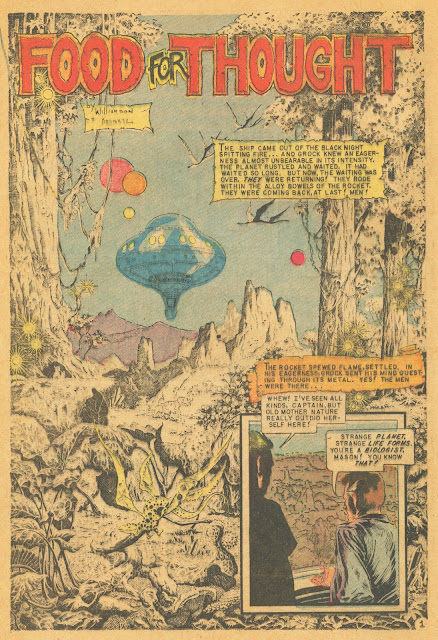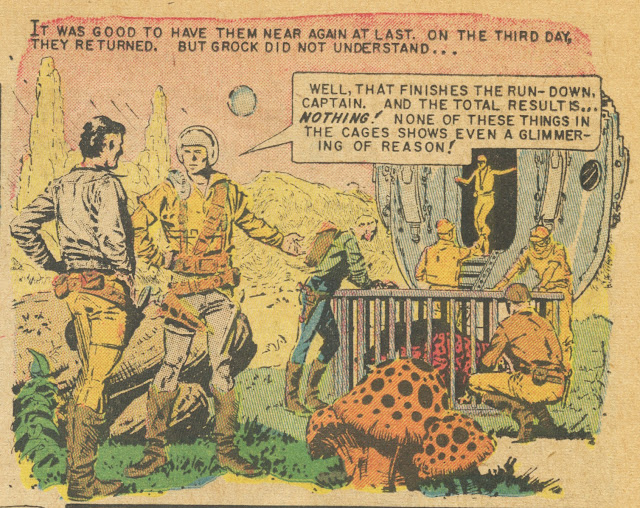Cartoonist Leonard Starr idolized his older brother, who was killed fighting in World War II. When Starr grew up and began his comic strip On Stage, he modeled a character after his brother.
The character, Grisha Volkov, was a dashing Russian rogue (Starr's family roots were in Russia). Starr made his character as tough and confident as Starr remembered his brother. Volkov won every battle, even the one Starr's brother lost.
When I was barely old enough to read On Stage I was thrilled by the beautifully drawn action scenes featuring Volkov.


 |
| I must've traced this image ten times while learning to draw. |
I cut the cool drawings out of my parents' newspaper and kept them in a shoebox. Those strips and I have both aged considerably since then, yet I still find them cool.
With a more mature eye, I can see the different ways in which these strips sparkled. Sure, fight scenes were cool but I learned it was more cool to merely imply the action, with Volkov emerging nonchalant at the end:

In this next scene Starr uses the same device of implied violence, as the Volkov character clears two spies outside his gate, then gets in his car and drives away.
 |
One by one, I grew to appreciate the range of talents that combined to make On Stage: Starr's brushwork, his timing, those subtle facial expressions, his staging. By the time I got to high school I even loved Starr's intelligent dialogue, which I believe was unique in the history of comic strips. Look how he used language to bring his brother's personality back to life, chuckling occasionally at how his brother might react in certain situations :
|






When I grew up and met Starr I found him to be possibly the most well read person I'd ever met. He loved the great Russian authors, particularly Gogol and Pushkin, but he would also seamlessly quote the private letters of Raymond Chandler. This range enabled him to combine rich characterizations of human nature with blunt, "tough guy" messages:
So... Starr extended his brother's life a little longer with his strip, and now that Starr himself is gone, I've extended it a little further by mentioning these things to you.
Going back through my shoebox of treasures, I was struck by the fact that there is no comic strip today that comes within ten miles of this kind of work. The world of comic strips has moved on and today excellence takes entirely different forms. This genre is as gone as the ancient city of Carthage after the conquering Romans were done plowing salt into its fields.


























